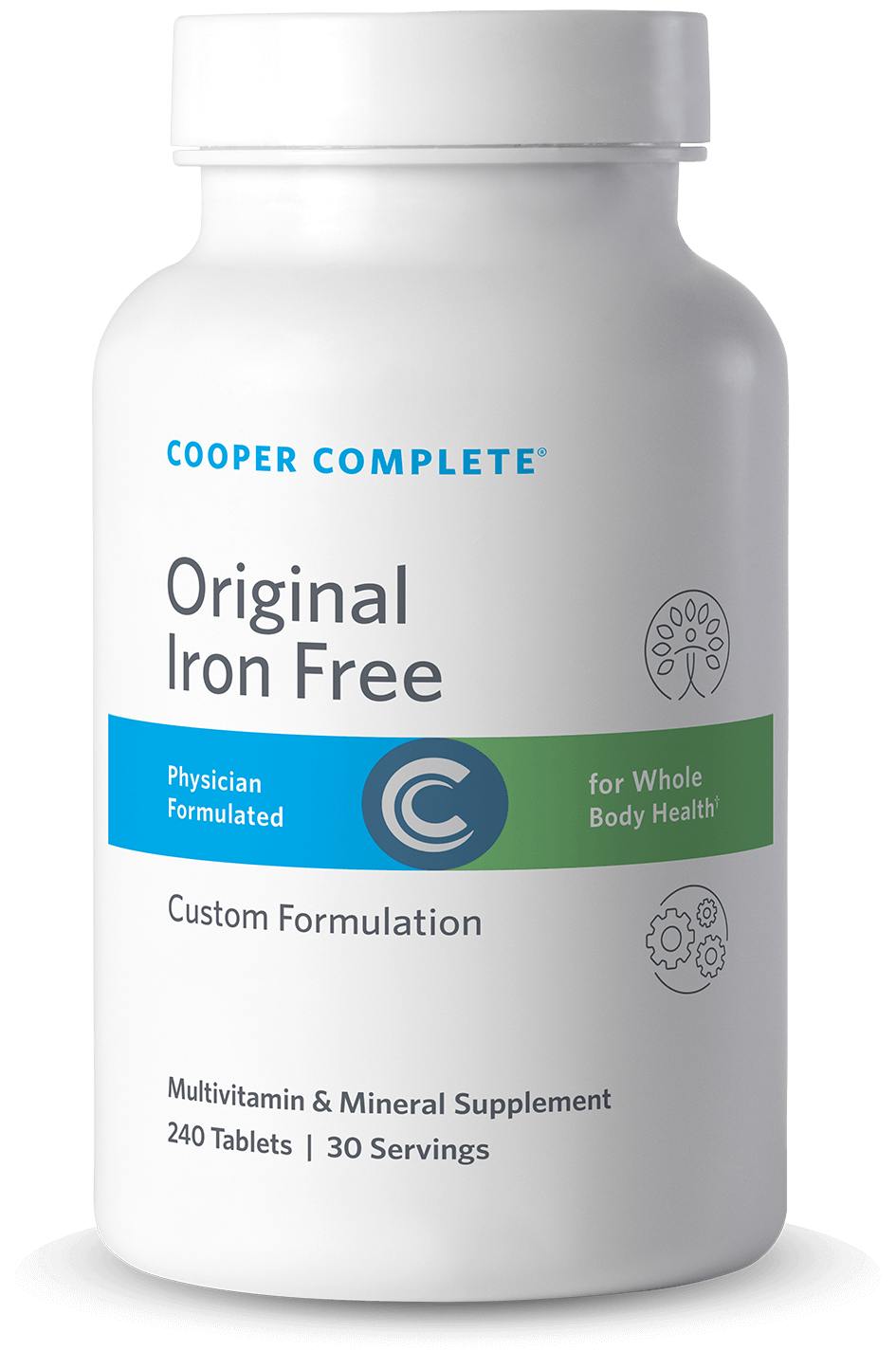Learn About Supplement Misconceptions and Learn The Facts

According to the Office of Dietary Supplements (at the National Institutes of Health), the majority of adults in the United States take one or more dietary supplements either every day or occasionally. Today, we’d like to explore common vitamin and supplement misconceptions.
Vitamin Misconception: “Vitamins are an insurance policy for a poor diet.”
Reality: There is too much that is yet to be discovered about the effects of a poor diet, but so far, there really is no insurance for a poor diet, so it’s best to approach your diet with a “foods first” mentality. It’s unrealistic to believe that a multivitamin and mineral supplement will fully augment any deficiencies from a cheeseburger and fries meal. This said, nutrient deficiencies can be corrected through supplementation. For example, vitamin D recommendations cannot be met through diet alone. Calcium is another vitamin that may require supplementation, especially for those who are lactose intolerant. Omega-3 fatty acids are incredibly helpful for those who don’t eat fatty fish on a regular basis.

Original Comprehensive Multivitamin Iron Free
Experience the difference - top-rated physician-formulated and recommended multivitamin and mineral supplement packed with 25 key vitamins and minerals, including Zinc, Magnesium, Potassium, Biotin, Selenium, Copper, Vitamins A, C, D, E, K, and activated B vitamins.†
$54.98 Add to cartVitamin Misconception: “It doesn’t really matter when I take my vitamins.”
Reality: There are water-soluble and fat-soluble vitamins. It genuinely doesn’t matter when water-soluble vitamins are taken and what our body doesn’t need it expels. However, fat-soluble vitamins are only absorbed when taken in conjunction with fat. For this reason, we recommend that all Cooper Complete vitamins be taken with a meal, and the meal should contain some fat. (If your breakfast is fat-free yogurt and a piece of fruit, you should wait until lunch or dinner to take your supplements.)
Vitamin Misconception: “I can’t take vitamins because they cause nausea.”
Reality: Vitamins taken on an empty stomach do cause nausea in some people. However, vitamins taken with a meal that contains some fat should not cause stomach distress. When possible, take your vitamins whenever you eat your bigger meal for the day. If this doesn’t work and you still have discomfort, another option is to take your vitamins with an evening snack of a piece of light cheese and a few crackers. Should you end up feeling differently, you’ll sleep through any issues.
Supplement Misconception: “If a little bit of a supplement is good, a lot of a supplement is better.”
Reality: As with the nutrition of food, more really isn’t better. Too much folic acid can mask anemia or a B-12 deficiency. And too much iron can be toxic – causing fatigue, joint pain, sexual dysfunction in men and frequent headaches in women. For this reason, we recommend that adult men and post-menopausal women take an “iron-free” multivitamin and mineral formulation.
Supplement Misconception: “Because vitamins and supplements are sold over-the-counter, I can assume they won’t interact with any prescribed medications.”
Reality: There are plenty of interactions between medications and dietary supplements. For example, the herb St. John’s Wort is often taken for depression and anxiety. However, this herb negatively interacts with Xanax (a common medication for anxiety), contraceptive drugs, and Warfarin (Coumadin). Utilize a drug interaction checker to key in the medications and supplements you are taking. If you find interactions, review them with your primary care physician.
Supplement Misconception: “I don’t like taking prescription medications, so I take supplements in place of my prescribed medication; that is what my friend is doing, and he seems fine.”
Reality: We’re fortunate to live in a world where there are great medications to manage blood pressure, cholesterol, insulin, and other common conditions. While omega-3 fatty acids and CoQ10 are often taken to support optimal heart health, they augment and are not a replacement for prescribed medications. Elevated blood pressure can lead to stroke and heart disease—don’t make a manageable situation worse by trying to treat serious health conditions with over-the-counter supplements!
Supplement Misconception: “Supplements are all the same.”
Reality: It pays to do your research. For example, many people believe the short-chain omega-3 fatty acid ALA is just as beneficial as the long-chain omega-3 fatty acids EPA and DHA, but ALA isn’t absorbed well by the body. When taking calcium supplements, do you know that calcium carbonate can cause constipation? Or that calcium citrate doesn’t need to be taken with a meal in order to be absorbed? A little bit of research can help ensure you’re taking the product that best suits your particular needs.
Article provided by Cooper Complete team.
